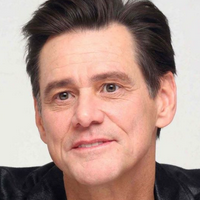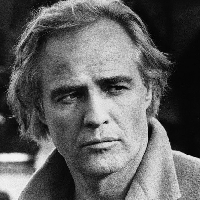Sarah Polley тип личности MBTI
Личность
"Какой тип личности является Sarah Polley? Sarah Polley - это тип личности INFP в mbti, 4w5 - sp/so - 471 в Enneagram, SLOAI в Big 5, в Socionics."
From observation, Sarah seems to be an INFP. On her enneagram, not sure. I think she could have 7 in her tritype, though. ・ 。゚☆: *.☽ .* :☆゚・。゚☆: *.☽ .* :☆゚.・ 。゚☆: *.☽ .* :☆゚.・ 。゚☆: *.☽ .* :☆゚・。゚☆: *.☽ ❖ So much of coming to terms with hard things from the past seems to be about believing our own accounts, having our memories confirmed by those who were there and honoured by those who weren’t. Why is it so hard for us to believe our own stories or begin to process them without corroborating witnesses appearing from the shadows of the past, or without people stepping forward with open arms when echoes of those stories present themselves again in the present? ❖I know now that I will become weaker at what I avoid, that what I run towards will strengthen in me. I know to listen to my body, but not so much that I convince myself I can’t do things or that I can’t push myself. [Si: attention to sensation-impressions.] ❖ The past and present, I have come to realize, are in constant dialogue, acting upon one another in a kind of reciprocal pressure dance. [Is this Ne or Se? Seems more like Ne.] ❖ I say that I didn’t know how much I missed my mother until I was pregnant. I say that I didn’t know how angry I was at her for dying. I say that now that I’ve lived two and a half years with my child, and felt the intensity of our subterranean, inexpressible, and indelible knowledge of each other, I’ve gone from feeling that eleven years with my mother was not very much, not nearly enough, to knowing that to feel adored and cherished by a mother who was full of warmth and joy is quite a lot, actually. More than most people get in a lifetime. And because, as I became a mother myself, I was nurtured, for a short time, by a team of wise and skilled people at Mount Sinai Hospital (an incubator that finished off the work that my mother left undone), I’ve been able to remember, clearly, what was best in her, and to discover what was, in fact, fully formed in me. [Wishing for the past ‘sensation-impression’ or memory of her mother, a sense of nostalgia (poor word choice), desiring a ‘what if’.] ❖ The past was affecting how I moved through the world, while present life was affecting how the past moved through me. [Si over Se?] ❖I can already sense how I will feel when I remember it years from now. I’m nostalgic for the present, mourning its passing even as it happens. [I thought this was Se; but it isn't. It's the inability to view reality as it is, for what it is.] ❖ In my movement classes, Kelly taught me how to walk, how to stand, how to make my body alive and present at all times. When my back was to the audience, I was to imagine that I was at a party and a boy I really liked was behind me. Though I was facing away from this imagined boy, my body’s energy and its language was all directed to and for him. It was a helpful image and one that my teenage self immediately connected with. [Strong intuitive function, definitely a Judging-function dominant.] ❖ By this point, it may be obvious that a nervous breakdown of epic proportions was in the offing. This dichotomy between my womanly body, which was in a kind of collapse, and the oddness of experiencing a sort of reversal of puberty and hard-won independence, twisted with the knots of a story written by a likely pedophile that contained echoes of my relationship with my father, was a powder keg for my subconscious. [Strong intuitive function.] ❖ The work of theatre seemed like intellectual, creative work, whereas almost everything else I had performed in seemed industrial or about producing a product as quickly as possible. [Aversion to Te, intuitive function.] ❖ I dealt with all this by wielding the only power I had, which at the time felt very real and potent: I could mock these men to their faces, I could say whatever I wanted, I could be as mean and bad and hurtful as I pleased. Because we both knew that, as a child who had felt their desire, I had something on them. ❖ The success of the first show left me with some rather rigid superstitions. I made sure to always have one of those same mints in my mouth and to be almost finished chewing it by the time the lights went down. I asked Tom to come up to me before every show and say “Break a leg” just as the lights finished dimming. I would say, in the exact same tone of voice I had before the first preview, “I just hope I don’t suck.” I would ask him to laugh in exactly the same way. He sweetly obliged. [Si routine. Wanting to go through the same motions repeatedly to invoke a certain trigger.]
биография
Sarah Ellen Polley (born January 8, 1979) is a Canadian actress, writer, director, and political activist. Polley first garnered attention and is probably most known as a child actress for her role as Ramona Quimby in the television series Ramona, based on Beverly Cleary's books. Subsequently this led to her role as Sara Stanley in the Canadian television series Road to Avonlea (1990–1996). She has starred in many feature films, including Exotica (1994), The Sweet Hereafter (1997), Guinevere (1999), Go (1999), The Weight of Water (2000), My Life Without Me (2003), Dawn of the Dead (2004), Splice (2009), and Mr. Nobody (2010). Polley made her feature film directorial debut with Away from Her (2006), for which she won a Genie Award for Best Achievement in Direction and was nominated for an Academy Award for Best Adapted Screenplay. Polley's second film, Take This Waltz (2011), premiered at the 2011 Toronto International Film Festival.
















